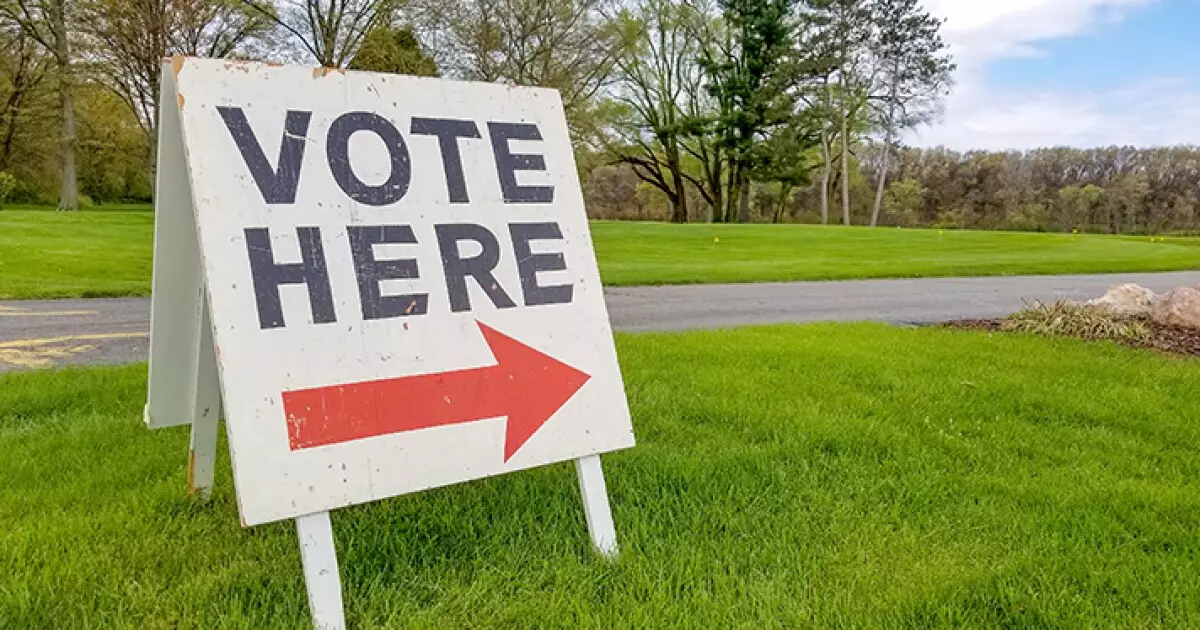As Texas grapples with a burgeoning population and pressing infrastructure demands, local governments and school districts are poised for a fundamental shift in how they manage funding through tax and bond elections. In a recent address, Governor Greg Abbott outlined his vision to impose more stringent requirements on local tax increases and bond issuance. His proposal, if enacted, would alter the voting process significantly, leaving many stakeholders questioning the ramifications for Texas communities consistently experiencing budgetary constraints.
Governor Abbott is advocating the necessity for a two-thirds majority vote—rather than the existing simple majority—to approve tax hikes and bond issuances. This shift aims to enhance accountability and hinder arbitrary tax increases, particularly in light of prior concerns over local entities allegedly exploiting loopholes to bypass voter consent, including instances related to disaster declarations. The proposed changes stipulate that such propositions would now be limited to elections held in November only, eliminating the possibility of May ballot measures. Such adjustments could make it increasingly challenging for entities to garner the necessary support for infrastructure projects especially, as many districts struggle with outdated facilities and surging student enrollments.
Impact on Local Governments and School Districts
The implications of these proposed thresholds extend far beyond the ballot box. Increasing the requirements for voter approval could disproportionately impede fast-growing communities in Texas. As the state has welcomed over 9 million new residents since 2000, local governments and school districts are under pressure to expand and enhance public services. Kevin Brown, director of the Texas Association of School Administrators, points to a struggle many districts already face in passing bond initiatives. The suggested two-thirds majority would exacerbate these difficulties, potentially stalling much-needed construction and repairs to school facilities, which are vital for maintaining educational standards amid rising enrollment figures.
The existing model of simple-majority approvals for bonds and tax increases has, until now, facilitated a steady volume of essential funding backed by property taxes. However, the proposed changes may drastically decline the likelihood of successful passage for vital infrastructure improvements within many districts. School facilities—especially those in older areas—could suffer from neglected maintenance, ultimately impacting the quality of education students receive.
At the core of Abbott’s proposals lies a significant attempt to provide property tax relief to Texans, as evidenced by the expansive $22.7 billion package approved in 2023, which he now seeks to augment by another $10 billion. While one may argue that stricter tax control is justified in pursuit of minimizing financial burdens on property owners, the reality is that this approach also limits how localities can fund essential services. Lt. Gov. Dan Patrick’s indication that the Senate may expedite the approval process gives credence to the seriousness of these proposals, despite the potential for considerable financial instability among local governments.
Opponents like Sen. Paul Bettencourt have expressed skepticism regarding the efficacy of supermajority voter requirements, emphasizing that the responsibility lies with elected officials rather than local taxpayers. This sentiment underscores a growing concern that politicians might evade accountability while stymying revenue opportunities for essential services.
The financial landscape in Texas public schools has shown signs of strain due to inflationary pressures, limited growth in local revenues, and minimal adjustments in state aid. A report from S&P Global Ratings indicated that without a balanced approach to revenue generation and fiscal scrutiny, districts across the state might encounter credit downgrades. The anticipated budgetary challenges could further encumber these institutions, raising the stakes even higher as lawmakers consider implementing supermajority thresholds.
Furthermore, Texas cities, including Houston, are contending with growing structural deficits, prompting local leaders to seek methods for enhancing operational efficiencies. The higher approval thresholds could complicate these attempts, leading many cities to revert to reactive measures rather than strategic planning for sustainable growth.
The debate surrounding the proposed supermajority requirement for tax increases and bond measures is emblematic of the broader tensions between fiscal responsibility and the pressing needs of Texas communities. As lawmakers deliberate on the viability of these changes, the balance between granting taxpayers greater control and empowering local governments to meet the challenges of a rapidly growing state remains delicate. Both sides of the issue must engage earnestly—one advocating for increased accountability among public entities, while the other emphasizes the need for an agile governance framework that can effectively address the infrastructural demands of a diverse and expanding population. The choices made in the upcoming legislative session will undoubtedly ripple through local communities, influencing their capacity to adapt and thrive amid ongoing economic challenges.


Leave a Reply